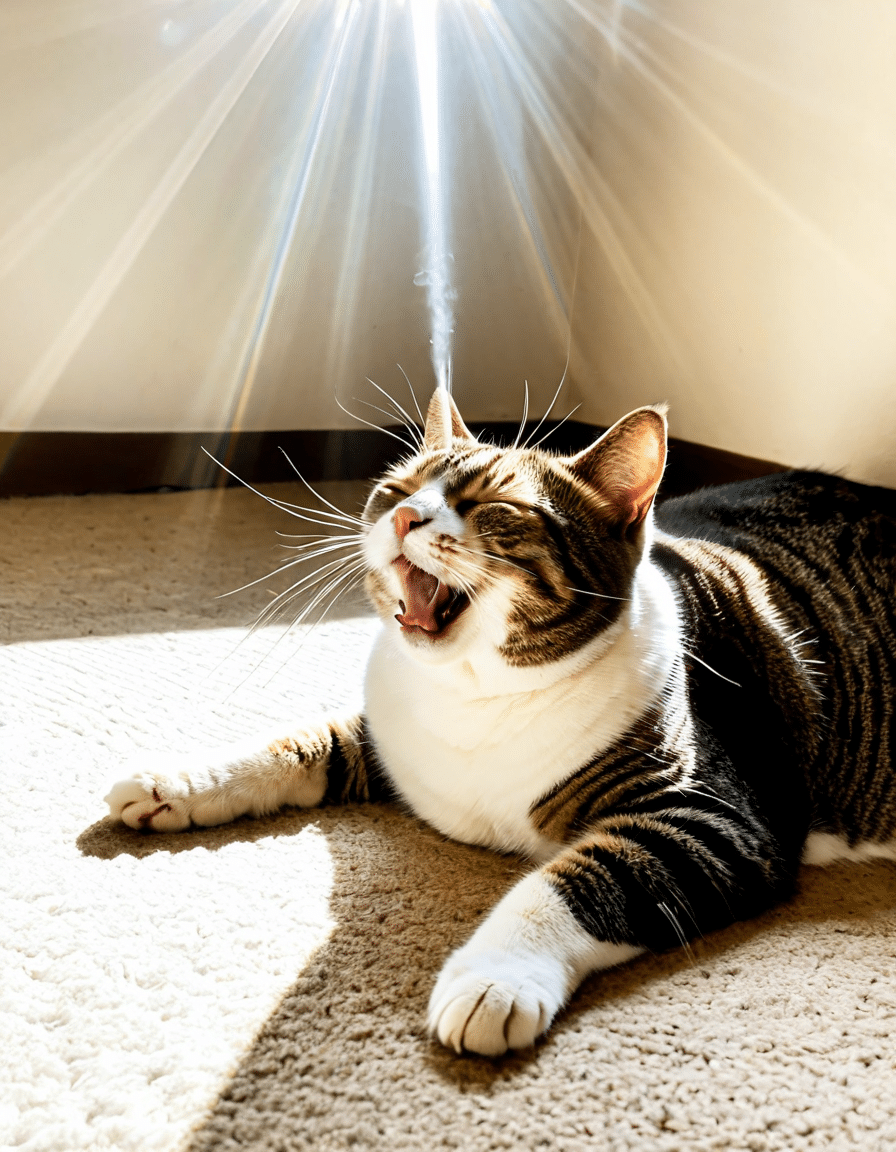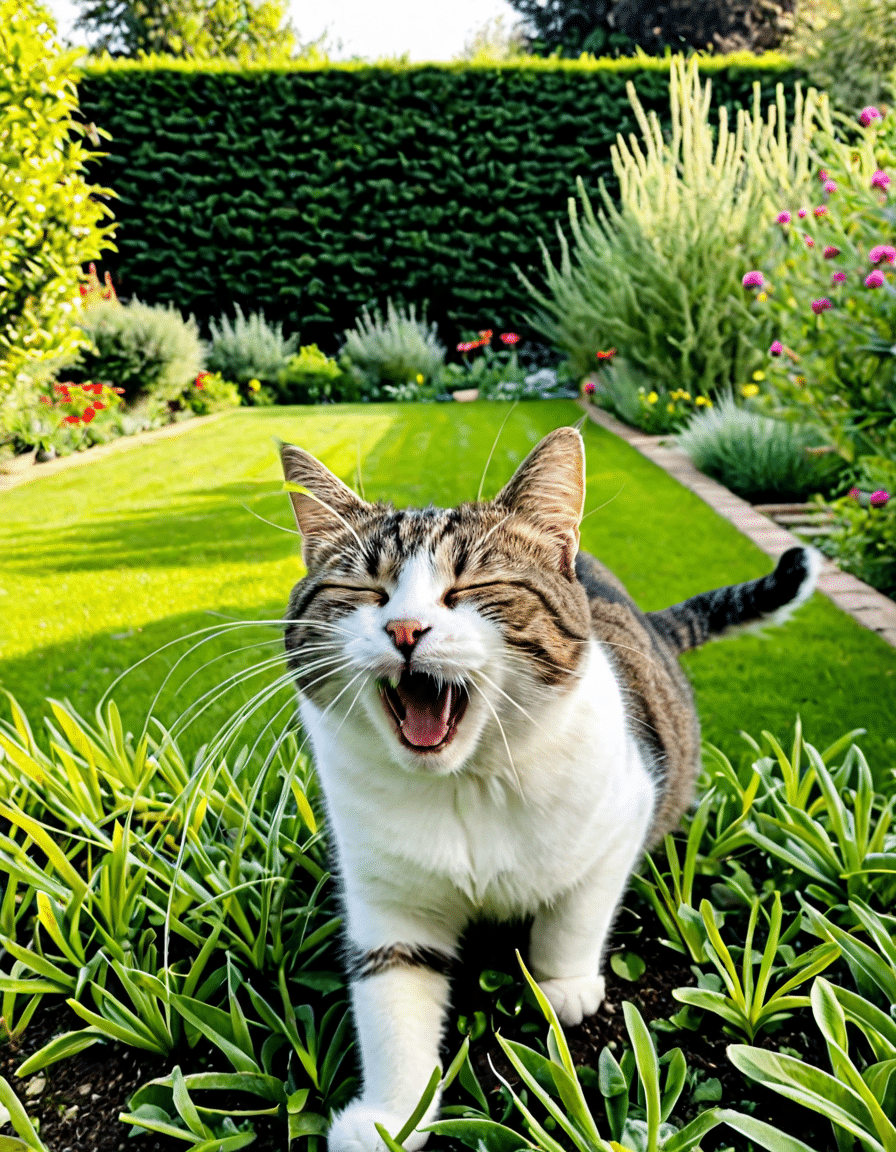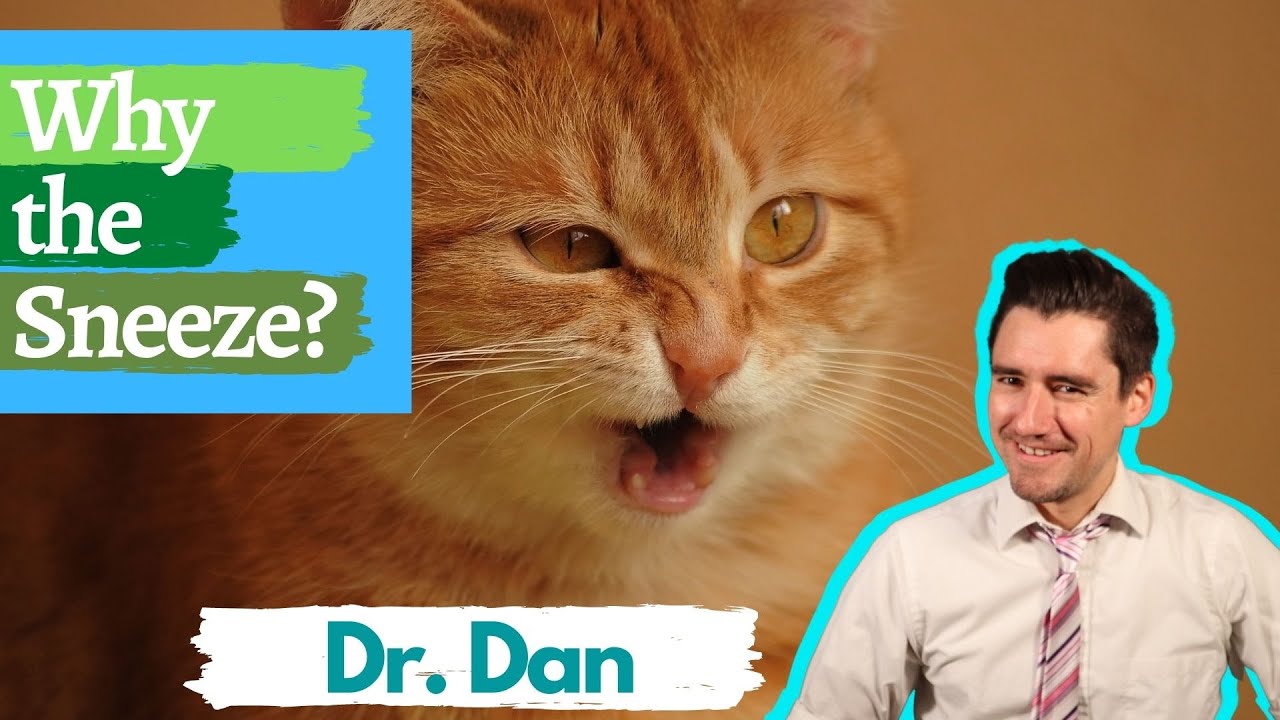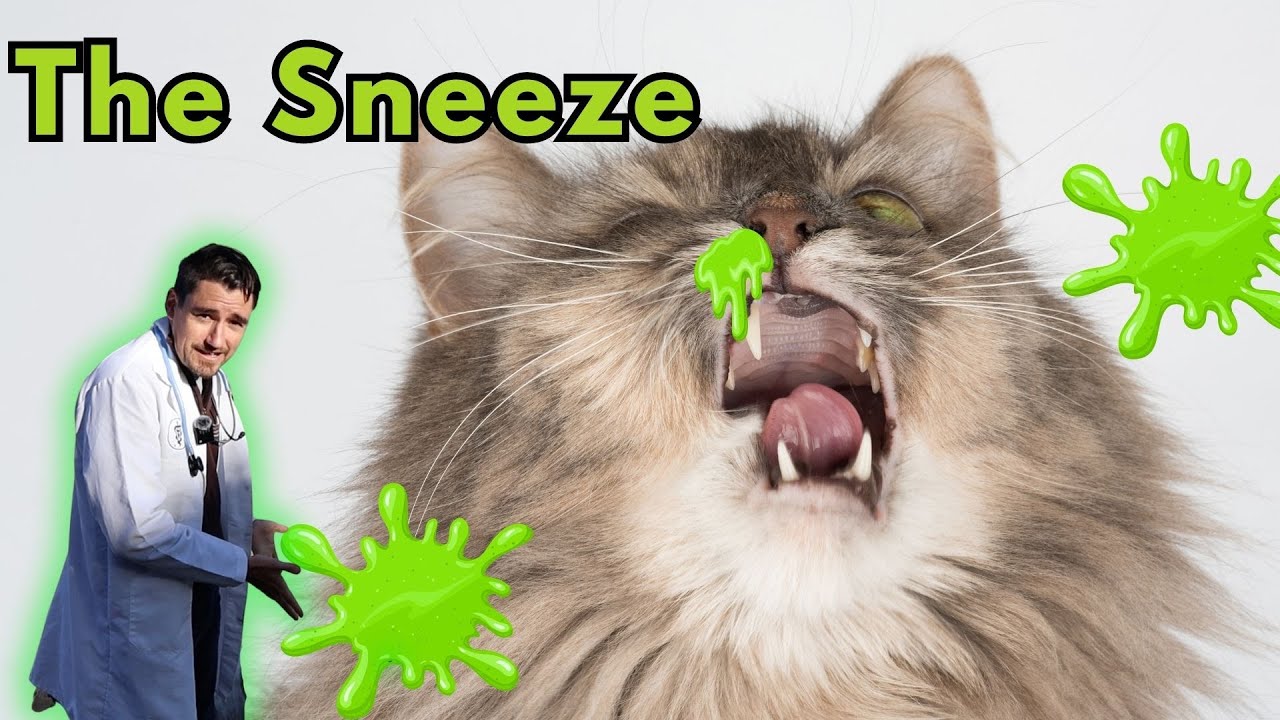When your cat is sneezing, it can be a cause for concern. This noisy little habit can leave pet owners scratching their heads, wondering what’s going on with their furry friend. The truth is, a cat sneezing isn’t always a terrible sign; in fact, it can sometimes just be a minor irritant. However, if your cat sneezes a lot or shows signs of additional symptoms, like watery eyes, it’s crucial to delve deeper into the underlying reasons. In this article, we’ll break down everything you need to know when your cat is sneezing, from common causes to treatment options.
Understanding Why Your cat is sneezing
Just like us humans, cats can sneeze for various reasons. For many pet owners, the alarming noise of a sneeze can trigger worries about health issues. So what’s behind this phenomenon? Generally, sneezing is your cat’s way of clearing irritants or allergens from their nasal passages. It serves as a defense mechanism. But while it might seem innocent, it’s essential to recognize when a sneeze might indicate a more serious health concern.
Usually, when a cat sneezes occasionally, it’s not something to stress over. However, if your feline friend starts sneezing frequently, it can point to a more significant issue. Understanding your cat’s health and recognizing changes are essential for keeping your furry companion happy and healthy.

Top 7 Reasons Why Your cat is sneezing a Lot
When your cat sneezes a lot, it might be a sign of various health issues. Let’s take a closer look at the top reasons behind those little “achoo” sounds:
Just like people, cats can have allergies to various things like pollen, dust mites, and certain foods. If your cat is frequently sneezing, you might notice signs of itching or redness in their eyes as well. Products such as Hill’s Science Diet provide specialized formulas for cats with allergies, helping to address these issues.
URIs are relatively common in cats, presenting with symptoms like sneezing and nasal discharge. They can be caused by viral infections, with feline herpesvirus being a primary cause. If you observe persistent sneezing along with mucous discharge, it’s time to visit your veterinarian for a proper diagnosis and treatment plan.
This contagious virus often leads to sneezing, watery eyes, and even oral ulcers. It spreads quickly among cats, especially those in multi-pet households. Vaccination is critical in reducing the risk of this infection, making it an essential aspect of your cat’s health care.
While less common, nasal polyps can develop in your cat’s nasal passages and lead to frequent sneezing. If your cat keeps sneezing yet seems healthy otherwise, consulting your veterinarian is vital to rule out such conditions.
Household irritants—like tobacco smoke, strong perfumes, or certain cleaning products—can trigger sneezing in cats. By observing your cat’s environment and minimizing exposure to these irritants, you can significantly enhance their quality of life.
Unbeknownst to many, dental problems can influence sneezing in cats. An infection in the mouth that connects to the nasal passages may provoke sneezing. Regular dental care is essential, and reputable brands like PetSmile offer products to help maintain your cat’s dental health.
Occasionally, a speck of grass or a small piece of lint can become lodged in your cat’s nasal cavity, causing irritation and frequent sneezing. If you think this might be the case, be aware of any signs of distress that might suggest a vet visit is required.
Signs and Symptoms to Watch: Cat Sneezing and Watery Eyes
When your cat is sneezing, it’s vital to observe any accompanying signs, such as watery eyes. Together, these symptoms can indicate a more severe issue like respiratory infections or allergies. Here are some significant indicators to keep an eye on:

Management and Treatment Options for Cats Sneezing a Lot
So, what should you do when the sneezes keep coming? Knowing how to manage your cat’s symptoms can improve their comfort and overall well-being. Here are some treatment considerations:
Innovative Solutions for a Sneezing Cat
In today’s age of pet care, numerous products and technologies can help keep your cat healthy and alleviate those pesky sneezes. Smart air purifiers with HEPA filters can filter allergens from the air, while specialized pet food can address underlying health concerns.
Furthermore, wellness apps like PetFirst can send you vaccination reminders, ensuring your feline receives timely check-ups and preventive care, helping to sidestep sneezing episodes altogether. Just like you wouldn’t neglect your own health, paying attention to your cat’s needs can lead to a happier, healthier life.
In conclusion, a sneezing cat can be a head-scratcher, but understanding the signs, symptoms, and potential underlying issues can help you take action. By staying vigilant about your furry friend’s health and incorporating innovative solutions, you’ll reduce the frequency of sneezes and improve their overall quality of life. Remember, a healthy cat equals a happy cat!
If you’ve been pondering questions like can humans get ear Mites From Cats or the differences between washable dog Diapers and conventional options, check out our articles on these topics to keep your pet’s wellness on the right track!
By keeping an eye on your furry friend and staying informed on potential health issues stemming from sneezing, you can navigate your pet care journey smoothly. Don’t hesitate to reach out to your vet for any concerning symptoms. After all, a cat sneezing occasionally might be completely normal, but if it turns into a constant issue and your cat sneezes a lot, it’s time to take action!
What Does It Mean When Your cat is sneezing?
When you notice your cat is sneezing, it can be quite alarming. Sneezing in cats can be a signal of something as simple as dust or a common cold, but it could also indicate a more serious issue. Interestingly, one of the most common culprits for sneezing in felines is the feline herpesvirus, which can lead to respiratory infections. Just like humans, cats can catch colds and experience sneezing fits; however, being attuned to their overall health is crucial. Speaking of health in pets, check out why seat Belts For Dogs are essential for their safety.
A Sneezing Cat’s Anatomy
Did you know that cats have a special way of sneezing? Unlike us, they have a unique respiratory system that makes them more sensitive to irritants in the air. This anatomy means that even a little whiff of pollen can set off a sneeze. Cats can also have allergies just like humans. If their nose starts to twitch, it’s often a sign they’re dealing with environmental factors. In a fun twist, did you know that each cheeky sneeze might sound just as adorable as a scene from an anime? For a giggle, think about how funny it would be for your favorite characters from anime Nana to have sneezing fits of their own!
The Social Aspects of Sneezing
Sneezing isn’t just a quirky habit; it can also show how your cat interacts with others. Felines can express their feelings through this action. For instance, when a cat sneezes around you, it might be a sign of playful affection or even a dramatic declaration of annoyance! Furthermore, if your cat seems to sneeze more around certain people (or pets), it might just be their way of saying they’re not thrilled, similar to how some celebrities, like Rihanna, can steal the spotlight with just a single look! It’s fascinating how much communication can occur in the simplest of body language.
When your cat sneezes, monitoring the situation and symptoms is just as important as knowing the facts. If you’re noticing ongoing sneezing or any other unusual behaviors, it’s time to consult your vet. After all, nobody wants their furry friend to be feeling under the weather, especially if it leads you on a wild chase for answers, akin to discovering which of the Giggly Squad members is up to mischief next!






